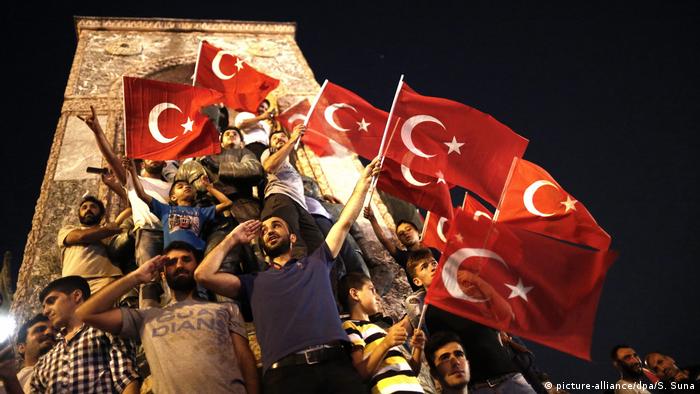Policy
Policy
 Turkey is a republic, whose latest constitution was approved by the Turkish parliament and passed in a nationwide referendum at the end 1982 r. The head of state is the president, elected by the Grand National Assembly for a seven-year term. The president has important executive powers. He bears overall responsibility for the state, it is to stand above political divisions and symbolize the nation. The president appoints the prime minister, judges, governors of the Central Bank and directors of radio stations. Maybe dissolve parliament, declare a state of emergency and issue decrees.
Turkey is a republic, whose latest constitution was approved by the Turkish parliament and passed in a nationwide referendum at the end 1982 r. The head of state is the president, elected by the Grand National Assembly for a seven-year term. The president has important executive powers. He bears overall responsibility for the state, it is to stand above political divisions and symbolize the nation. The president appoints the prime minister, judges, governors of the Central Bank and directors of radio stations. Maybe dissolve parliament, declare a state of emergency and issue decrees.
Executive power rests with the government, headed by the prime minister. As in most parliamentary democracies, so in Turkey, usually the party chairman becomes the prime minister, which won the most seats in parliament. The legislature belongs to the latter. The National Assembly is unicameral, and they elect him in general elections (co 5 lat) citizens, who have completed 18 lat. After recent constitutional amendments (1995) he is in parliament 550 deputies. Lots come into it after getting at least 10% votes.
Turkey's party system includes several parties with quite old origins. The Justice and Development Party is at the forefront of today's political scene (AKP), led by Prime Minister Recep Tayyip Erdogan. The party was founded in 1983 r. as the Welfare Party (RP) and from the beginning it brought together Muslim fundamentalists, opponents of NATO and the West in general. It supported closer ties with Islamic states and demanded that religion be introduced into state life. Its chairman for many years was Necmettin Erbakan, Prime Minister of Turkey in the period 1996 – 97. Due to the preaching of overtly anti-Semistic slogans, he was removed from this post (by the guardian of laity – army), and RP disbanded. In its place, the Virtue Party was founded, bringing together the same electorate, coming, incidentally, from the poorest strata of society – especially the poor districts of big cities. The Virtue Party was banned just as quickly and another transformation took place, this time in the AKP. To avoid livelihood problems, that is, to survive on the political scene and gain power, the fundamentalist course was eased, and after achieving success in the parliamentary elections in November 2002 r. there was even a clear denial of any ties with Islam and the intention to integrate with the European Union was announced.
Until recently, the center-left Democratic Left Party played the leading role in the country (DSP) Bulenta Ecevita, which was founded in 1985 r., but after the last election, its members do not even sit in parliament. The second force in the National Assembly is now the People's Republican Party (CHP) founded by Atatirk himself in 1923 r. Solved in 1981 r. and revived in 1992 r., it was not always strictly leftist. W 1995 r. merged with the center-left Social Democratic People's Party. It is headed by Deniz Baykal. Patriotic Party (ANAP), led by Mesut Yilmaz, was founded in 1983 r. It brings together nationalist and conservative elements, economists, bankers and industrialists. Its program supports the free market, The European Union and at the same time closer ties with the Islamic world. Right Way Party (DEEP), founded in 1983 r., has a program similar to ANAP and represents the center-right. He is in favor of the pro-Western and secular nature of the state. The main goal of economic reforms is the privatization of state-owned enterprises. The party's chairman is the former prime minister, Tansu Ciller.
There are still several smaller or larger parties operating in Turkey, which, however, do not play a significant role on the country's political scene, m.in. this is why, that to enter parliament, need to get 10% votes, and this only happens to the largest groups. HADEP recently disbanded, that is, the People's Democratic Party, prosecutor, created in 1994 r "was with DEHAP (Democratic People's Party) the only legally operating Kurdish party in Turkey. Currently, only DE-H AP is left on the scene (created in the same year as HADEP), but it looks ahead, that she too will soon be dissolved. Decisions on dissolution are made by the Constitutional Tribunal (under pressure from the government, of course), and these steps are explained by the cooperation of both parties with the PKK, that is, the terrorist Party of Kurdistan Preachers, which cannot actually be ruled out, although both HADEP, and DEHAP strongly disavow this.